We're hiring ! Join us and make a difference in our hospitals
Emergencies
Contact
Our role
The H.U.B. Emergency Department operates across the three university hospitals (Erasme, Bordet and the Children’s Hospital), providing the population with access to general and specialised medical care 24 hours a day, 7 days a week. The qualified team of accident and emergency doctors and specialised nurses also follow up the complex pathologies already treated at the hospitals, permit the link with specialists, and welcome all new patients irrespective of the actual or suspected degree of gravity.
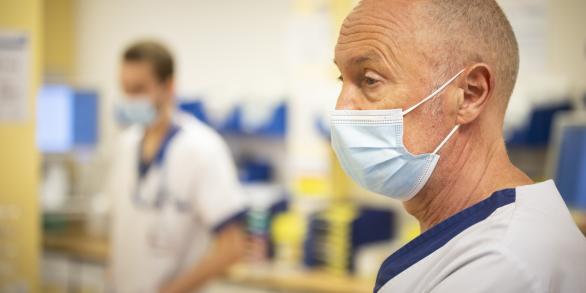
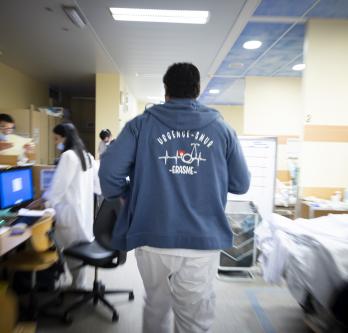
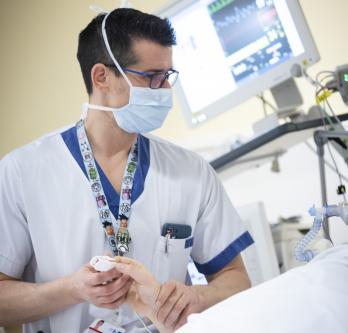
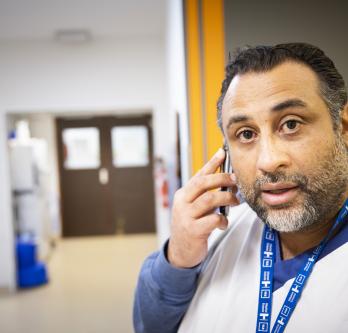
Our specialties
The Erasmus Hospital Emergency Department is structured into 5 main sectors: a medical sector, a surgical sector, a paediatric sector, a psychiatry sector and a resuscitation room.
Administrative registration: On arrival at the Emergency Department, patients – or a loved one if they are unable to do it – first register at Reception.
- Pre-selection room: A nurse then comes to find out the reason for coming to the Emergency Department, notes the parameters and administers painkillers if necessary.
- Medical treatment: Depending on the anamnesis, the patient will be directed to a particular care zone and circuit: non-disabled, disabled, paediatric, psychiatric or emergency. The doctor will examine the patient and order additional examinations. If after the pre-selection no examination is needed, the patient will be seen by a qualified emergency doctor within the ultra-short circuit.
- Hospitalisation discharge: Depending on the diagnosis and/or the condition of the person, he or she may:
- either return home; the person may, however, be requested to consult their GP or hospital specialist. In the latter case an appointment is made;
- or be hospitalised in a conventional or an acute care unit.
Our team
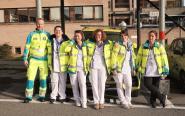
Our medical specialists
Focus 1
The Erasmus Hospital Emergency Department has a medical intervention vehicle (MIV). This is crewed by a driver, an emergency doctor and a nurse and in response to a 112 call can be in the field with all the resuscitation equipment needed to administer immediate medical care. The MIV carries out close to 2000 missions a year in the Brussels Region and in Flemish Brabant.
Focus 2
Since 2022, the Erasmus Hospital has been an accredited level 1 Trauma Centre. This particular care pathway is activated for severely injured persons with suspected serious internal injuries. They are treated by specialists in orthopaedics, neurosurgery, digestive surgery, etc. The Trauma Centre of course includes the Emergency Department, Intensive Care, Blood Bank, Medical Imaging and the Operating Theatre.
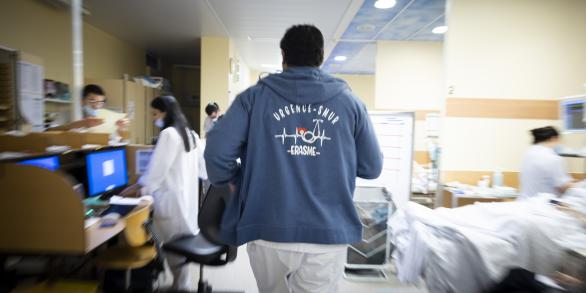
Teaching
Since 2020, future emergency doctors have to complete an internship at the SimLab, the ULB’s simulation laboratory. Working on a dummy connected to software they learn clinical procedures (intubation, catheter placing, etc.), how to respond when faced with realistic clinical scenarios, and how to communicate with other care providers.